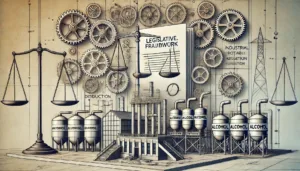Facts of the Case
- Background: The appellant entered into a works contract with the respondent. Disputes led to arbitration initiated on February 12, 2018. After pleadings were completed on October 9, 2019, the statutory timeline under Section 29A of the Arbitration and Conciliation Act, 1996, commenced. The award deadline (12 months) extended by mutual consent expired on April 9, 2021.
- COVID-19 Impact: Arbitration proceedings were disrupted by the pandemic. This Court’s January 2022 ruling excluded the pandemic period (March 15, 2020 – February 28, 2022) from the calculation of limitation. The proceedings resumed and concluded by May 5, 2023, but delays persisted in moving the court for an extension under Section 29A(4).
- High Court Decision: The Gujarat High Court dismissed the appellant’s application for extension on November 3, 2023, citing an unexplained delay of over two years in filing the application.
Contentions of the Parties
Appellant (M/S Ajay Protech Pvt. Ltd.):
- Relied on the Supreme Court’s exclusion of pandemic-affected periods in limitation calculations.
- Highlighted mutual agreement with the respondent to seek an extension.
- Argued the importance of finalizing the award to avoid additional costs and hardship for both parties.
Respondent (General Manager & Anr.):
- Asserted that the tribunal’s mandate expired by October 31, 2022, even after accounting for pandemic exclusions.
- Claimed that the delay of nine months in filing the extension application (post-mandate expiry) was unjustifiable.
- Cited Rohan Builders (India) Pvt. Ltd. vs. Berger Paints India Ltd., arguing against retroactive extensions.
Principles Enunciated
- Judicial Interpretation of ‘Sufficient Cause’: Courts must interpret “sufficient cause” in Section 29A(4) contextually to facilitate effective dispute resolution while balancing efficiency and timeliness.
- Mandate Extensions Post-Expiry: The Supreme Court clarified that applications for extension under Section 29A(4) can be entertained even after the tribunal’s mandate expires, as long as sufficient cause is demonstrated.
- Party Autonomy and Dispute Resolution: Arbitration promotes party autonomy; courts may intervene to ensure procedural delays do not impede dispute resolution.
Final Order
The Supreme Court allowed the appeal, set aside the Gujarat High Court’s dismissal, and extended the arbitral tribunal’s mandate until December 31, 2024. The Court deemed the delay attributable to external factors like the pandemic and not to either party’s fault, constituting sufficient cause.
Impact on Public Law and Order
This judgment reinforces arbitration as an efficient dispute resolution mechanism, providing flexibility for unavoidable delays without compromising fairness. It underscores the judiciary’s role in upholding procedural justice amidst unforeseen challenges, fostering trust in alternative dispute resolution systems.
Citation: M/S Ajay Protech Pvt. Ltd. vs. General Manager & Anr., 2024 INSC 889.








